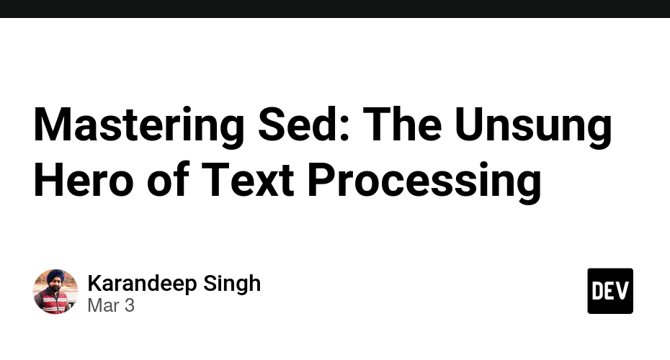Dev
1M
145

Image Credit: Dev
Mastering Sed: The Unsung Hero of Text Processing
- Sed, the stream editor, has been a powerful tool in Unix systems since 1974, offering efficient text processing capabilities for various tasks.
- Sed's wide availability, memory-efficient processing for large files, and suitability for automation make it irreplaceable in many scenarios.
- Contrary to misconceptions, sed goes beyond simple substitution, allowing for complex text transformations and supporting automation integration.
- The article series on mastering sed covers essential one-liners, text replacement in multiple files, and JSON manipulation without jq, offering practical examples and learning paths.
- DevOps engineers, system administrators, backend developers, data engineers, and those in constrained environments can benefit from enhancing their sed skills.
- The articles share real-world experiences, emphasizing the value of sed in crisis resolution, log analysis, configuration management, and code generation.
- Advanced sed topics like scripting, multi-line processing, integration with awk and grep, and automation in CI/CD workflows offer avenues for further exploration.
- Common questions about sed address its learning curve, performance, handling of binary files, differences between GNU sed and BSD sed, and opportunities for engaging in the sed community.
- Practical advice encourages readers to engage with sed through creating cheat sheets, sharing knowledge, and exploring automation challenges, emphasizing learning by doing.
- Overall, mastering sed can significantly enhance text processing efficiency, making it an indispensable tool for various professionals across different environments.
Read Full Article
8 Likes
For uninterrupted reading, download the app